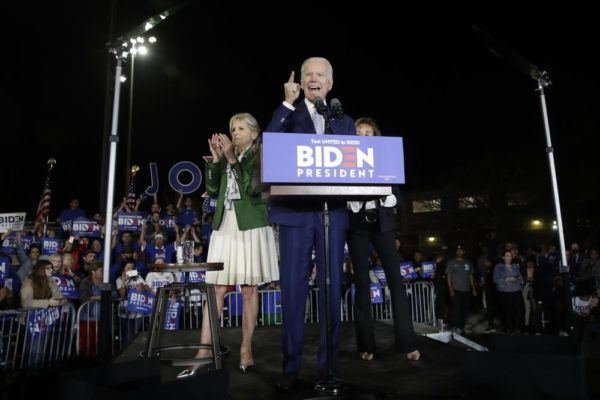Voters in at least five Michigan communities may soon head to the ballot box to vote on recreational marijuana — again.
Less than a year after voters across the state approved Proposal 1, activists in Allen Park, Romulus, Hudson and Vanderbilt are spearheading ballot initiatives to opt back into the law after local government officials chose to ban pot businesses within their city or village boundaries.
In South Haven, concerned citizens are pushing a potential ballot proposal to ban local businesses, a step elected officials are considering but have not yet taken.
Experts predict these efforts could be the first in a wave of local ballot initiatives as activists push bans or push back against officials in more than 520 Michigan communities who have chosen to opt out of the law by prohibiting local growers, retailers and other related businesses.
The new state law gives local governments the option to ban pot businesses, but it also gives residents the opportunity to force a vote by collecting petition signatures from 5% of voters who cast a ballot in the most recent gubernatorial election.
In the tiny Otsego County village of Vanderbilt, population 562, organizers needed to collect 10 voter signatures to put an initiative on the August primary ballot that would allow for up to 22 licensed marijuana businesses in the 1.1-square-mile community.
“We already went to the polls,” said Vanderbilt Trustee Ryan Cottrell, who is pushing the initiative and notes that villagers supported Proposal 1 last year 58%-42%. “That’s a whoopin’ at the ballot box, so I just hope in August we can reaffirm it and hopefully we can usher Vanderbilt into the 21st century.”
Organizers in Allen Park, Romulus and Hudson are making similar arguments as they circulate petitions and seek signatures for what would be November proposals. In each community, local voters approved Proposal 1 but elected officials approved or are considering ordinances to opt out of the law and deny business licenses.
“People voted in November (2018), and since then it seems like all we’re reading about is municipalities trying to circumvent the vote and basically keep things the way it’s always been,” said Chad Morrow of the Coalition for a Safer Allen Park.
Nearly 57% of Allen Park voters supported the statewide legalization proposal on the Nov. 6 ballot, compared with 43% who opposed it.
Allen Park’s quick opt-out
Council wasted little time opting out, voting Nov. 13 to ban recreational marijuana businesses within city limits. Officials had already signaled their intent when they introduced and endorsed the opt-out ordinance in October, Mayor William Matakas said.
Matakas said he was concerned by reports he read from Colorado, which launched legal recreational sales in 2014. Allowing local businesses to open would make it harder to kick them out once the public sees the impact of legalization, he said.
“It’s going to be something that we’re going to have to endure even if we find that it was a mistake to allow it,” Matakas said. “I just don’t want my city to be stuck saying, ‘Hey, we know this is bad for us but we can’t stop the sales in our community.’”
Allen Park voters could have the final say.
Morrow said his ballot committee has already collected 996 signatures for an opt-in measure, surpassing the 652 needed to qualify for the ballot. The proposal would allow for up to three standalone retail stores and three “microbusinesses” that would be licensed to grow up to 150 marijuana plants, process and sell or transfer them.
Morrow, who is also running for City Council, called the Allen Park initiative a “sensible” proposal that would generate tax revenue for the city without creating the “odor of skunk” that some critics associated with marijuana facilities.
He is also helping local organizers in Romulus who are now circulating petitions for a more expansive initiative that would allow up to five retail stores, five microbusinesses and unlimited growing and processing center licenses.
Opting back into the law would provide local governments with additional tax revenue to address other needs, said Morrow, who previously operated a medical marijuana shop in Gaylord that was raided by police in 2016. He ended up pleading guilty to two marijuana delivery charges and spent 15 days behind bars.
Proposal 1 created a 10% excise tax on marijuana and requires the state to direct 15% of the resulting annual revenue — minus administrative costs and one-time funding for clinical trials — back to local municipalities that allow retail sales or microbusinesses.
In Hudson, a small city in Lenawee County, organizers are petitioning for an initiated ordinance that would allow for up to 22 local marijuana businesses, including 15 growers, five processors and three retailers.
“I expected it to be a trend that evolves,” said attorney Joshua Colton, who is working on the Hudson initiative and expects to see similar efforts in other communities. “I’d be paying attention if I was in charge of a municipality.”
Initiatives a two-way street
Proposal 1 included the initiative option because drafters “anticipated there would be communities where local officials weren’t going to listen to the will of their voters,” said Josh Hovey, who was communications director for the Coalition to Regulate Marijuana Like Alcohol and is now a spokesman for the Michigan Cannabis Industry Association.
“(They) felt that it was appropriate to give voters the opportunity to make their support heard and to overturn the decisions of politicians who might not be as progressive as the rest of their community on his issue,” he said.
But the provision is “a two-way street,” said Scott Greenlee, who campaigned against Proposal 1 as president of Healthy and Productive Michigan and continues to encourage local opt outs.
A group called Concerned Citizens of South Haven is trying to force the issue in their community, where City Council has temporarily prohibited marijuana businesses but has not yet decided on a long-term plan.
The citizens group collected more than the 100 signatures required to advance an opt-out initiative that would prohibit any recreational marijuana establishments in South Haven. City Council can adopt the measure or allow it on the November ballot, said local organizer Don Bemis.
“Most of the communities around us — but not all — have opted out of recreational marijuana businesses,” Bemis said, “and if we’re the only one nearby, we fear we’d become a magnet for people wanting to either grow, process, ship, test or sell marijuana within the city.”
While South Haven voters narrowly approved Proposal 1, “we suspect a large number of people voted for the state initiative because they wanted to decriminalize the use of marijuana, but they may not have recognized the business aspect of it.”
The state is expected to begin accepting marijuana business licensing applications in November, and Greenlee predicts the advent of recreational pot shops will encourage additional activists to petition for local business bans in communities where elected officials have not.
He called the Vanderbilt proposal “crazy,” arguing it would be “ridiculous” to allow up to 22 licenses marijuana businesses in a 1.1-square-mile village with a population of roughly 560 residents.
“They’re literally going to have to line these things up next to each other and that’s going to take up the whole community,” Greenlee said. “I think it’s pretty obvious that the marijuana industry, the marijuana lobbyists want to set that up to be the gateway — no pun intended — to the north. It’s an overreach.”
Cottrell downplayed the concerns, noting zoning rules will limit the number of properties that could be used for marijuana businesses, some of whom could apply for multiple license types under state rules.
“We would love to see two, three, maybe four businesses pop up,” he said. “But that would be equal to the number of gas stations and bars.
“We’re not going to be inundated with marijuana businesses, but I hope we will be inundated with marijuana customers. Hopefully the traffic coming into Vanderbilt is increased exponentially. Hopefully the gas stations are busier, and the restaurants are busier.”
joosting@detroitnews.com
(517) 371-3662
Read or Share this story: https://www.detroitnews.com/story/news/politics/2019/07/24/michigan-marijuana-fight-heads-local-ballots/1800019001/


